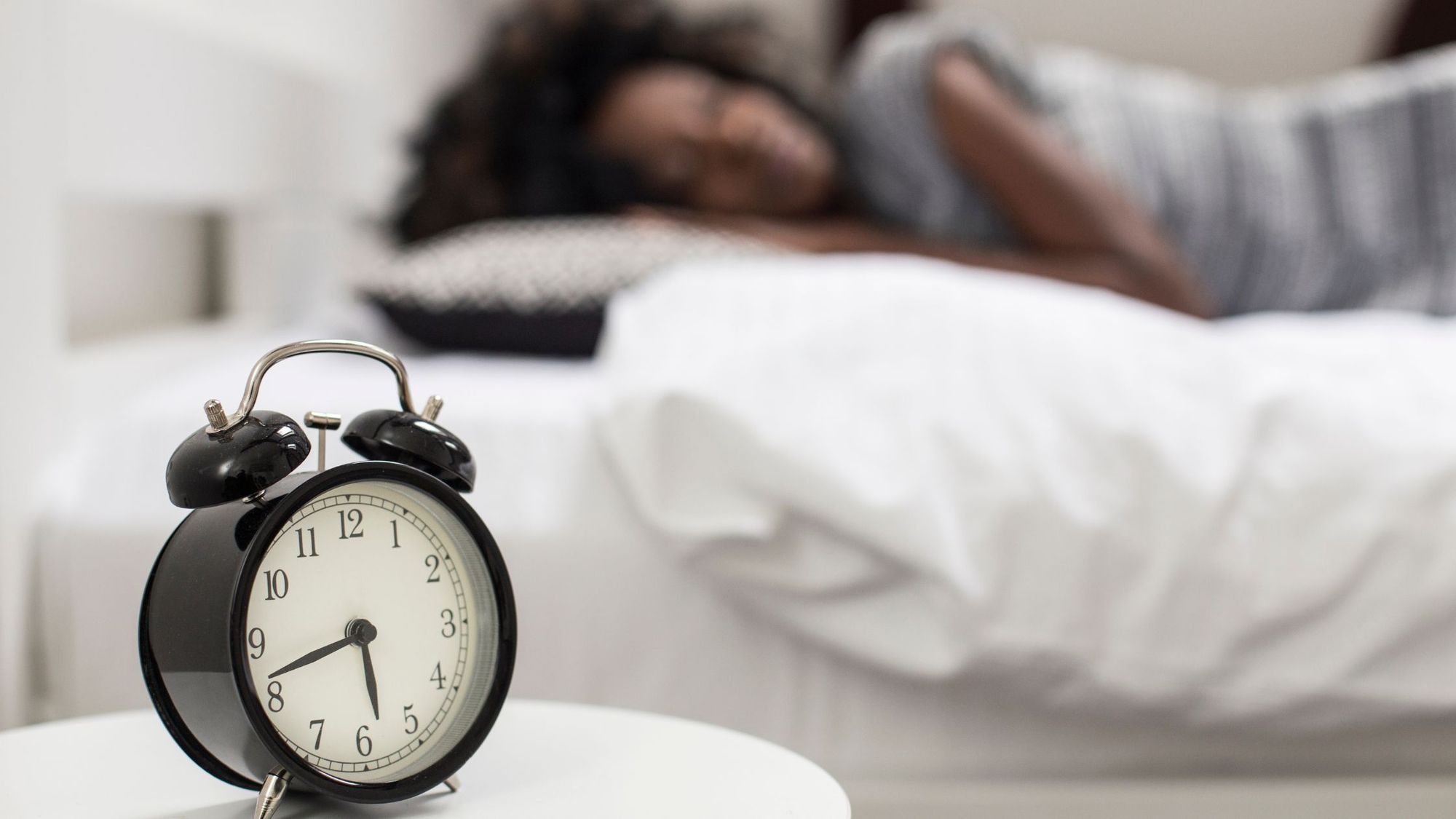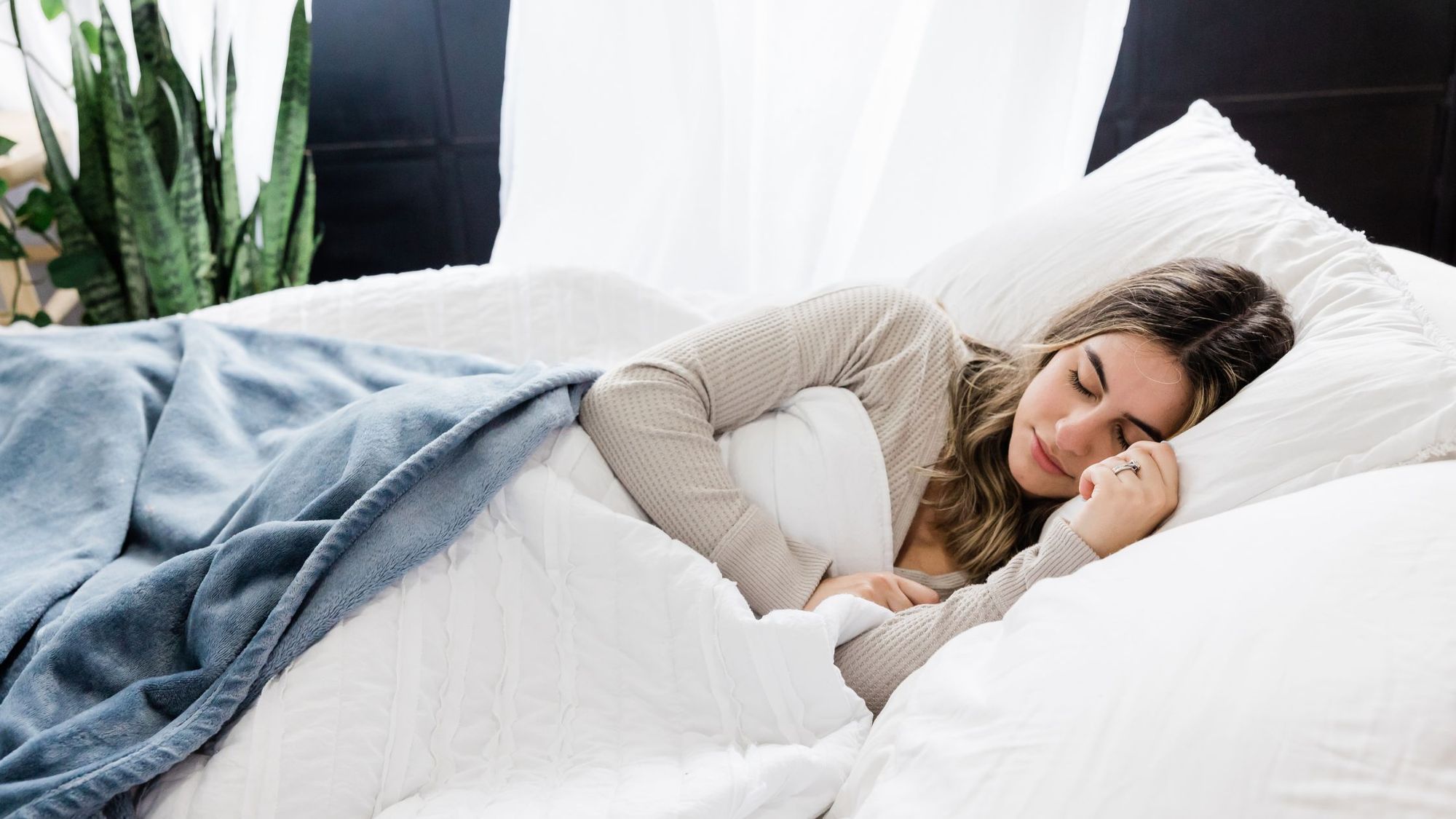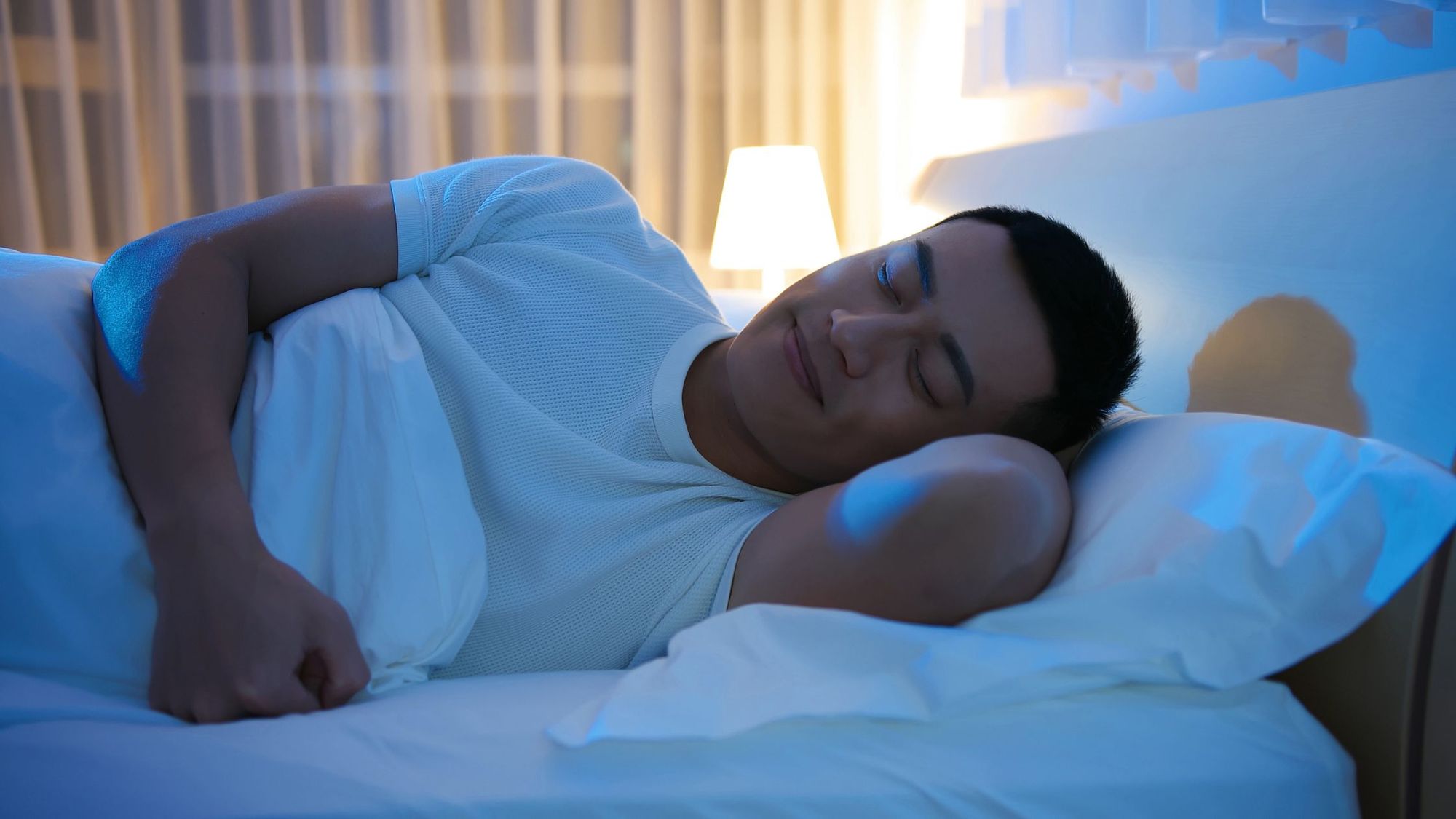
Do you really need 8 hours of sleep? This is an incredibly common question, because some people think that the ‘8 hours of sleep per day’ concept is a myth, and there is some truth to this. Everyone needs a different amount of sleep, and this can depend on factors such as their total daily energy expenditure, their age, and of course, their genetics. Your genetic makeup could cause you to need more or less sleep.
One thing is for sure: sleep is absolutely crucial to your overall health and wellbeing.
There are countless health benefits of getting consistent, quality sleep. Getting good sleep boosts your brain performance and health. Productivity, making decisions, learning, and solving problems are easier when you sleep well. You’re also more clear-headed and in a better mood when you get a good night’s rest. Your mental health stands to benefit a great amount from sleeping well.
A lot goes on in your body while you’re sleeping. Adequate sleep each night helps you maintain healthy hormone levels, and strengthens your immune system. A restful night’s sleep also allows your body to heal and recover.
However, due to hectic schedules, a lot of people get less sleep. If you’ve been irritable or moody, falling asleep at work, yawning all day long, craving high-sugar foods, or feeling low on energy, it could all be a sign that your sleep is out of balance.
Even though sleep is essential to a healthy routine, do you really need 8 hours of sleep per night? The truth is that there’s no cookie-cutter approach to sleep. While some people wake up feeling refreshed after six hours of sleep or less, others can barely keep their eyes open during the day, even after sleeping for 9 or more hours.
This means that some people are still tired after 8 hours of sleep, while others feel very energized and well-rested even if they only slept 6 hours. The key could be sleep quality or a ‘short sleeper gene’, and we’ll get into that later.
Read on to learn if you’re getting adequate sleep.

Do You Really Need 8 Hours of Sleep for Optimal Wellness?
Think of sleep as your internal housekeeping and maintenance system. Your brain and body can only perform many critical maintenance functions while you’re asleep. However, the specific amount of sleep required varies from person to person. Do you really need 8 hours of sleep per night? Maybe. But it’s also possible that you don’t. It depends on each individual.
For instance, some people swear they need a solid 8 hours of sleep daily. On the other hand, others get by just fine with only 5, 6, or 7 hours.
It’s important to note that the amount of sleep you need to function optimally changes throughout your life, throughout different ages and stages of life.
According to the National Sleep Foundation, the sleep duration ranges (for healthy people without sleep disorders) should be as follows:
- Adults age 65 and above: 7 to 8 hours
- Adults aged 26 to 64: 7 to 9 hours
- Adults aged 18 to 25: 7 to 9 hours
- Teens: 8 to 10 hours
- School-age children: 9 to 11 hours
- Preschoolers: 10 to 13 hours
- Toddlers: 11 to 14 hours
- Infants: 12 to 15 hours
- Newborns: 14 to 17 hours
Other factors that affect your sleep requirements include:
- Lifestyle
- High vs low stress
- Physical activities / physical exertion
- Medical conditions
- Environmental factors
- Consecutive nights of sleep deprivation
- Genetics

Higher Sleep Needs: Why Do Some People Need More Than 8 Hours of Sleep?
Here’s why some individuals might require over 8 hours of shut-eye per night:
Sleep Debt
Sleep debt is the difference between the hours of sleep you should be getting and the hours you actually get. So, if you’re supposed to clock 8 hours of sleep, and you only get 6, that can result in a two-hour sleep debt.
Different factors contribute to sleep debt. They include:
- Stress and anxiety
- Long hours at work
- Long commutes
- Chronic pain interrupting sleep
- Sleep disorders
- Family obligations
- Caregiving such as newborn baby responsibilities
- Digital distractions
Even one hour of lost sleep can put you in sleep debt. Research suggests that it takes 4 days of rest to pay back just one hour of sleep debt.
You won’t function quite as well when you’ve accumulated sleep debt. Thus when your body gets a chance, it’ll want to catch up on sleep debt and sleep more than your usual sleep needs.
Needing more than 8 hours of sleep per night, and being still tired after 8 hours of sleep, could be due to sleep debt from a night’s sleep cut short earlier in the week.
The message here is that one night of bad sleep, where your sleep was interrupted or cut short, could throw off your whole week.
Your Sleep Need Might Be Over 8 Hours
Are you sluggish in the morning, even after sleeping for a full eight hours? Still tired after 8 hours of sleep? Do you feel lethargic all day? If you’ve always needed more than 8 hours of sleep to feel refreshed, don’t feel pressured to wake up earlier unless you have to. Some people require extra sleep to function at their best.
Other Causes for Sleeping a Lot
You may also be sleeping too much because of the following possible reasons:
- Pregnancy
- Menopause
- Sleep disorder
- Drinking alcohol
- Certain medications
- Mental health condition such as depression
- You’re on your period
- You’re emotionally exhausted due to high anxiety etc
Why Am I Still Tired After 8 Hours of Sleep?
Still tired after 8 hours of sleep, and not sure why? If you’re wondering why you’re still exhausted even after sleeping for 8 hours, here are the possible reasons why:
Sleep Inertia
Do you hit the snooze button as soon as the alarm goes off? Or maybe you feel groggy or tired upon waking? You may have sleep inertia.
Sleep inertia is a temporary physiological state or feeling disoriented or groggy when you first wake up, which can trick you into thinking you need more sleep. Do you really need 8 hours of sleep or more? Or do you just have sleep inertia making you think you need more sleep?
Sleep inertia is the feeling of wanting to go right back to sleep the moment you wake up.
Some of the symptoms of sleep inertia are:
- Disorientation
- Sleepiness or grogginess
- Trouble concentrating
- Impaired cognitive function
Generally, sleep inertia lasts anywhere from 15 to 60 minutes. You could power through sleep inertia rather than going back to sleep for more hours than you need. But prolonged sleep deprivation can add to the duration of sleep inertia, making it last several hours after waking.
In some instances, this can be dangerous, particularly if someone has to perform safety-critical activities, drive, or be on call. Severe sleep inertia impacts cognitive and motor skills, increasing the risk of errors and serious injuries.
Do you suspect you have sleep inertia? Try turning all the lights on, splashing some cold water on your face, and drinking a caffeinated beverage as soon as you wake up. Try a more gentle waking system such as a sunrise alarm that wakes you gradually with slowly increasing light and gentle sounds. Invest in blackout curtains to improve sleep quality, put new sheets on your bed for a cozier sleep, or get a new mattress to help kick sleep inertia to the curb.
Sleep Efficiency
Sleep efficiency can also contribute to morning fatigue if your sleep efficacy score is low. Do you really need 8 hours of sleep, or do you just need better sleep efficiency?
To find your sleep efficiency score, divide the amount of time you’re actually asleep by the total time spent in bed.
Use a smartphone app to track your sleep and figure out your score. Apple Watches and other devices do this for you as well.
For instance, if you find out that you sleep five hours out of the eight hours spent in bed, your sleep efficiency is 62.5 percent. So how do you know what a normal score is? A good sleep efficiency is considered to be 85 percent or greater.
You can help your body power down, and consequently improve your sleep efficiency by improving your sleep hygiene.
Do this by avoiding potential distractions or blue light in your bedroom an hour before bed. This means not using your phone in bed, switching off the TV, ensuring no music is playing, and turning off the lights. Read before bed with a dim salt lamp or soft candlelight.
Developing a nighttime ritual. A relaxing activity like taking a warm bath before bed can improve your sleep efficiency score.
Circadian Rhythm Issues
Your internal clock or ‘circadian rhythm’ tells you when to sleep and wake. But sometimes, your sleep habits may cause your circadian rhythm to get out of whack. This can leave you with the negative effects of poor sleep, like feeling exhausted in the morning.
You could notice nocturnal tendencies, similar to someone with ‘shift work sleep disorder’.
‘Delayed Sleep Phase Syndrome’ is a circadian rhythm disorder where people are fully nocturnal and can’t fall asleep until it’s near sunrise.
Circadian rhythm issues can sometimes be treated, and for others these circadian rhythm issues are very difficult to treat, but there are doctors and sleep clinics that can help.
Since your circadian rhythm responds to environmental cues like darkness and light, or sleep chemicals like melatonin, you can make the following lifestyle changes to help reset your internal clock and hopefully fix your sleep schedule.
- Soak in some sunshine in the morning
- Talk to your doctor about melatonin supplements
- Go to bed at night when you begin to feel exhausted
- Avoid exposure to bright lights 2 hours before bedtime
- Use light therapy devices to wake up during winter months when darkness hours are longer
Is it Bad to Sleep Too Much or Too Little?
One study reveals that subpar sleep can affect your ability to remember information, communicate, and solve problems in the short term.
What else could happen if you don’t get enough sleep? In the long term, sleep deprivation is linked to the following health conditions:
- Obesity
- Diabetes
- Stroke
- Premature aging
- Alzheimer’s disease
- High blood pressure
- Cardiovascular disease
- Mental health disorders like anxiety and depression
Oversleeping can have just as many detrimental effects as sleep deprivation. Consistently getting too much sleep can increase your risk of:
- Anxiety
- Obesity
- Diabetes
- Stroke
- Heart disease
Short Sleep Duration: Is It Possible to Function Normally on Less Sleep?
Imagine getting on by on only 6 hours of sleep, and waking up feeling refreshed. For a few lucky people, this is a reality. It’s estimated that only 1 percent of the global population are short sleepers.
‘Short Sleepers’ are people who, thanks to their DNA, only need 5 – 7 hours of sleep per night for optimal function and optimal wellness. They do not need 8 hours of sleep per night.
Ying-Hui Fu, Ph.D. professor, and her fellow researchers discovered a “short sleep gene” known as DEC2 that was present in short-sleepers but not in those with normal length of sleep. The UCSF scientists have now identified a second gene. Both genes leave people feeling well-rested after only 5 – 7 hours of sleep, sometimes less.
“Short sleepers are very cheerful, optimistic, and energetic”, says Fu. “They also have a higher pain tolerance and better memories. Thanks to their super-efficient sleep, short sleepers’ bodies function at 100 percent or close to that daily.”
Short sleepers don’t intentionally avoid or restrict sleep. They also don’t need to catch up on sleep or take naps. Moreover, short sleepers don’t experience any side effects connected to sleep deprivation, despite sleeping for fewer hours.
Instead, they maintain good health, wake up ready to take on the world, and don’t find themselves feeling lethargic.
So, do you really need 8 hours of sleep per night? Certainly not if you’ve got the short sleeper gene.
Find out if you have the short sleep duration gene, and many other facts about yourself, by taking a CircleDNA test. This simple, at-home DNA test only requires a cheek swab. You can read about your genetic sleep traits, as well as many other interesting reports such as your genetic personality traits, genetic skin traits, genetic nutrition guidelines, and more.
Is 8 Hours of Sleep A Myth?
Now we can finally answer the question, do you really need 8 hours of sleep, or is it a myth?
It’s a myth. Not everyone needs 8 hours of sleep per night. Research shows that the amount of sleep required to function at your peak is unique to everyone. As mentioned above, a majority of adults between the ages of 18 to 64 need 7 to 9 hours of sleep each night. Some might only need 5 or 6, thanks to their genetics.
A simple way to determine your sleep needs is by being attentive to your energy levels, mood, and overall health. For example, if you feel fatigued frequently or you’re noticing other symptoms caused by poor sleep, you may need to sleep more to ensure you’re raring to go come the next day. You may also need to improve your sleep hygiene and sleep efficacy score to ensure the quality of your sleep is not the real issue.
References:
- National Sleep Foundation’s updated sleep duration recommendations: final report.
- Estimating individual optimal sleep duration and potential sleep debt https://www.nature.com/articles/srep35812
- Dissociable effects of self-reported daily sleep duration on high-level cognitive abilities
- ‘Short Sleep’ Gene Prevents Memory Deficits Associated with Sleep Deprivation | UC San Francisco
- After 10-Year Search, Scientists Find Second ‘Short Sleep’ Gene | UC San Francisco
- Sleeping hours: what is the ideal number and how does age impact this? – PMC






This Post Has One Comment
Comments are closed.